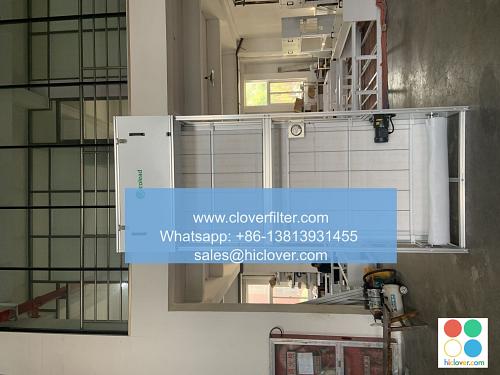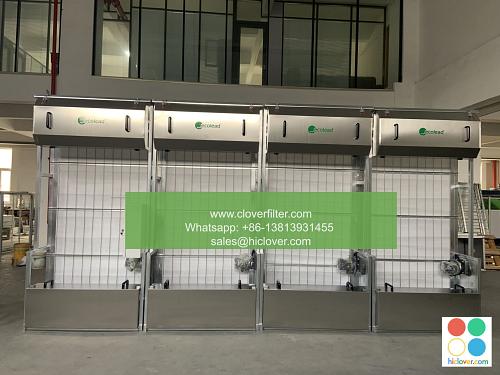Hospital Air Filter Regulations: Cleaning and Disinfecting for Patient Safety

Hospital Air Filter Regulations: Cleaning and Disinfecting for Patient Safety
Introduction
Hospitals play a crucial role in providing quality healthcare services to patients. However, they can also be breeding grounds for harmful bacteria and viruses that can pose a significant risk to patient health. One of the most important measures to prevent the spread of infection is to maintain a clean and healthy indoor environment. This includes effective air filter regulation, cleaning, and disinfecting. In this article, we will discuss the importance of hospital air filter regulations and their application in various areas of the hospital.
The Importance of Air Filter Regulations
Air filters in hospitals are designed to capture particles, germs, and other contaminants that can spread diseases. However, these filters need to be regularly cleaned and disinfected to ensure they remain effective. Improperly maintained filters can compromise the air quality, putting patients at risk of infection. The Centers for Disease Control and Prevention (CDC) and the Occupational Safety and Health Administration (OSHA) have set guidelines for the maintenance of hospital air filters to ensure patient safety.
Guidelines for Cleaning and Disinfecting Air Filters
The CDC and OSHA recommend the following guidelines for cleaning and disinfecting air filters:
- Annual Inspection: Air filters should be inspected annually to ensure they are in good condition and functioning properly. Any damaged or clogged filters should be replaced immediately.
- Quarterly Disinfection: Air filters should be disinfected every quarter to prevent the growth of mold and bacteria. This can be done using a disinfectant solution specifically designed for hospital use.
- Daily Cleaning: Air filters should be cleaned daily by running a vacuum cleaner over them to remove any dust, dirt, and debris.
Application Areas for Air Filter Regulations
Air filter regulations are crucial in various areas of the hospital, including:
- Operating Rooms: Air filters in operating rooms are critical to prevent the spread of infection between patients and medical staff.
- Intensive Care Units (ICUs): ICUs are particularly susceptible to the spread of airborne pathogens, making air filters a vital component of infection control.
- Emergency Departments: Emergency departments experience high volumes of patients and staff, increasing the risk of the spread of infection.
- Patient Rooms: Patient rooms, including private and semi-private rooms, require effective air filter regulation to prevent the spread of infection.
- Multipurpose Rooms: Multipurpose rooms, such as conference rooms or break rooms, need to be cleaned and disinfected regularly to prevent the spread of infection.
Challenges in Implementing Air Filter Regulations
While air filter regulations are crucial for patient safety, there are challenges to implementing these regulations, including:
- Cost: Replacing and maintaining air filters can be costly, making it a challenge for small or budget-constrained hospitals.
- Technical Challenges: Some air filter systems may require specialized knowledge to clean and disinfect, posing a challenge for hospital maintenance staff.
- Time Constraints: Hospitals often face tight schedules, making it difficult to allocate sufficient time for air filter maintenance.
Conclusion
The importance of air filter regulations in hospitals cannot be overstated. By implementing annual inspections, quarterly disinfections, and daily cleaning, hospitals can ensure a healthy and safe environment for patients and staff. While there are challenges to implementing air filter regulations, the benefits to patient safety and reducing the risk of infection make it a worthwhile investment. By prioritizing air filter regulations, hospitals can play a crucial role in preventing the spread of infection and ensuring the best possible outcomes for patients.
I’d be happy to help with a prompt! What would you like to talk about or ask?


